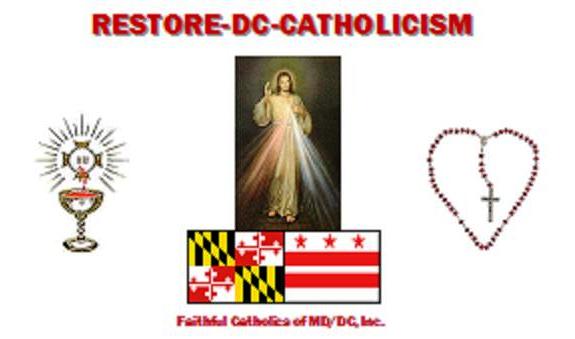Chapter 2 of AL goes through an entire litany of forces hostile to the family: poverty, drug abuse, violence, absence of fathers, unemployment, etc. Only once do I see the word "contraception" mentioned (and I mean only once in the entire 264-page tome). That occurs in paragraph 42, but only to decry the forcing of the same on women by governmental authorities. Nowhere is contraception itself condemned as the heinous moral evil that it has always been. Yet Pope Paul VI in Humanae Vitae nailed it right on the head when he said that any engagement in the inherently sinful (mortal sin at that) practice of contraception would lead to the deconstruction of the family and ultimately civilization as well. The ultimate consequence of course is the eternal damnation of those who engage in it. In fact, as I read this, I see no mention of eternity. There is only the focus on the situation of this temporal life, which is minuscule in comparison to eternity. If choices impacting family life were made with the intention of furthering one's eternal salvation, many of the ills described in Chapter 2 would be greatly reduced if not eliminated altogether.
In Chapter 3 we look at paragraph 59 where it says, "Our teaching on marriage and the family cannot fail to be inspired and transformed by this message of love and tenderness; otherwise, it becomes nothing more than the defense of a dry and lifeless doctrine." Dry and lifeless doctrine? Beg pardon, but if by "dry and lifeless doctrine" it refers to the teaching of Jesus Christ through His Church, such a slur is nothing short of blasphemy. And what's with all this sissified emphasis on "tenderness"? Whatever else it may be, it is not an integral part of true charity - unless "tenderness" means tossing moneychangers from the temple, excoriating the pharisees as "brood of vipers", etc.
Last week a New York Times article appeared online entitled "The New Catholic Truce". For something coming out of NYT, I thought the author did a reasonably decent job in detailing the harmful effects of AL Here is one cogent quote: What the church considers serious sin becomes mere “irregularity.” What the church considers a commandment becomes a mere “ideal.” What the church once stated authoritatively it now proffers tentatively, in tones laced with self-effacement, self-critique.
You can see that he notices that the pope is shying away from the commands of Jesus Christ. The author seems to think that such is the language of "truce" and that the pope is trying to satisfy both progressives and faithful Catholics. He might have a point. What often happens when one tries to please everybody is that he pleases nobody. Of course when we're talking of papal writings, one should hope that the pope would only be trying to please One Person, God Himself.
I left a comment on the facebook page where this originated. Here it is. There's no "truce". As long as evil dissent is allowed to fester in the Church, there damned well better be division in the Church for we cannot "unite" around a policy of appeasing evil. More often than not, conciliatory language of "truces" is satanic in origin.
I've read writings of other papal apologists who suggest that we should all break out in thanksgiving because the Vicar of Christ did not overtly show himself to be an anti-pope. Such writing is pathetic and is its own scandal. Is that the best we should expect from the Church's chief shepherd? How craven we have become when it is suggested by Catholic authors that we all wax lyrical when the successor of Peter doesn't spew forth too much spiritual poison. Alas, with AL such flimsy hopes were not to be realized. Read Steve Skojec's take on the matter, with which I wholly agree.








I agree fully. Thank you for this, the 'analysis' from some 'apologists' on AL is really disgusting. The apostates who said during the Synod that the 'language' should be altered to become more accepting got their way as well. I noticed that AS I WAS READING IT A WEEK AGO. Adhering to the Gospel of Jesus is 'ONLY AN IDEAL', and living in sin (as it has been known throughout Church history) IS AN 'IRREGULARITY'. AL as far as I am concerned is DIABOLICAL and I think there are scores of Catholics who are stubbornly in DENIAL.
ReplyDeleteIt is good that you brought out the fact that in AL here is no mention of contraception, and no mention of eternal goals. These essential topics, the first of grave sin, the second our purpose in life, seem have deliberately been avoided in AL.
ReplyDeleteCivil divorce and separation of validly married couples ( with a few exceptions) also is no longer treated as sinful as it once was. Now it seems to be assumed that most Catholic marriages do not meet the criteria for validity due to 'immaturity'... for this misinterpretation of 'immaturity' Pope Saint John Paul II publicly admonished the USA Catholics several times. Now it seems that "lack of Faith" is the popular new cause of invalidity of marriage. Taking quite an opposite approach, Pope Saint JP II amended Canon Law to "validate" non-Catholic marriages of baptized Catholics who had
abandoned their Faith.